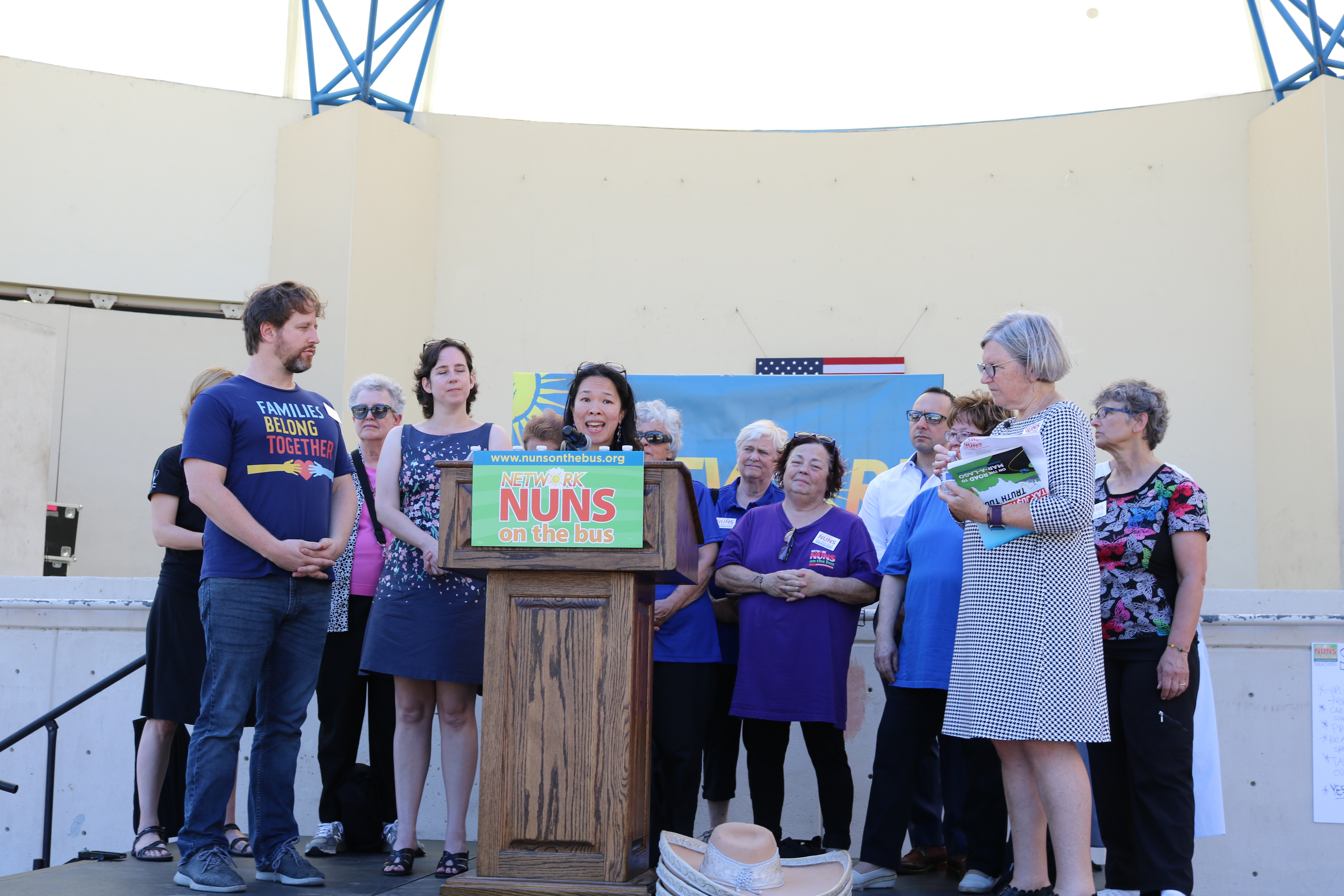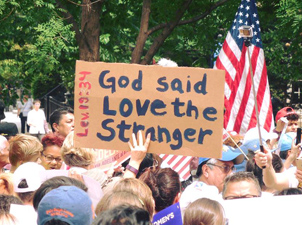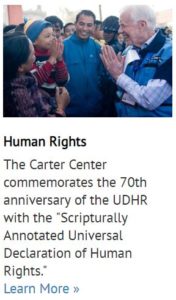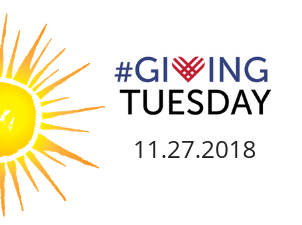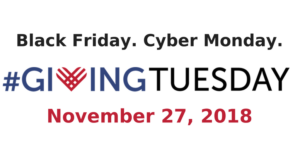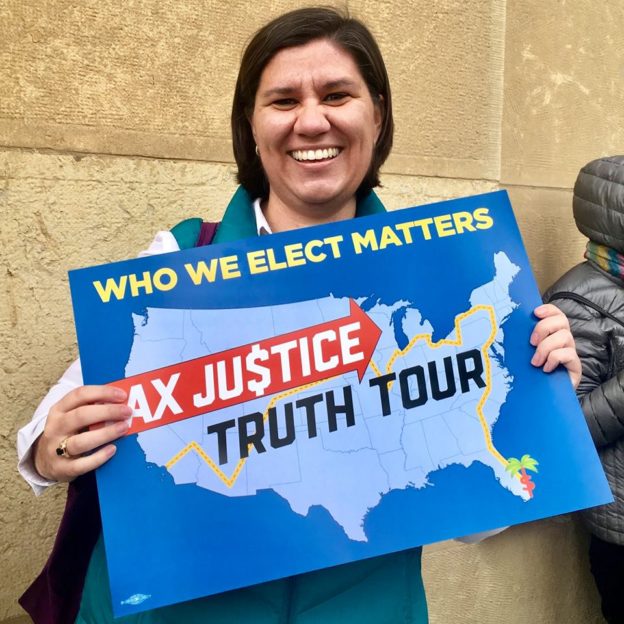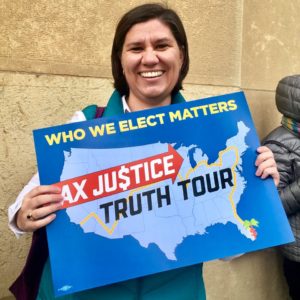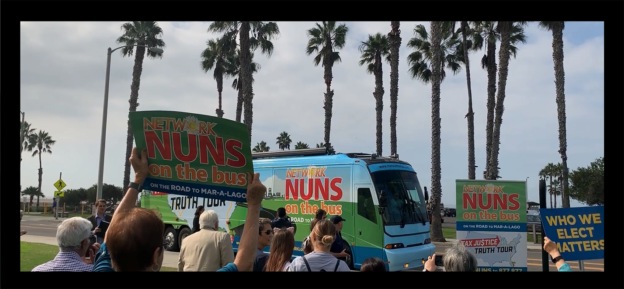
Driving Our Democracy Forward with Conversations and Community
Sister Simone Campbell
February 24, 2019
Reflecting on Experiences from the Road to Mar-a-Lago
As we traveled more than 5,000 miles on the 2018 Nuns on the Bus trip, I was struck by the fact that at each of our 13 lobby visits (or attempted visits) constituents told us that their member of Congress would not meet with them. The most extreme was Representative Peter Roskam (IL-06) whose office was in a private airport building in West Chicago, Illinois. The building is secured by the Transportation Safety Administration (TSA) and no one could enter the building unless they had been screened by TSA. Additionally, groups could not hold rallies outside the building because it was a “safety issue.” So, this embattled Congressman was protected by TSA while his constituents and our bus had to hold our rally 2 blocks away from the office. I was stunned! This is not democracy!
This experience has fueled my New Year’s resolution to make democracy work. There are many new members of Congress and we need to make sure that they have opportunities to meet and listen to their constituents. Members need to hear the stories of the people in their district in order to create effective responses to the challenges that they face.
This was highlighted for me when the bus stopped in Columbia, South Carolina and we held a roundtable conversation with local service organizations. Representative Jim Clyburn (SC-06) joined us for the roundtable and we learned of the varied needs of the people in his district. In a freewheeling discussion, we learned many things, including:
- Columbia has the sixth highest eviction rate in the nation and the state of South Carolina needs more than 4,000 new units of affordable housing, but none is being built.
- Agriculture is the second largest industry in South Carolina and tourism is first. Both industries are highly dependent on immigrants to flourish. Yet exploitation and hostility toward immigrants is all too common. Anti-immigrant policies and attitudes are making it difficult to find employees for both industries.
- Latino men are attacked frequently. Undocumented people are unable to use banks in South Carolina, so they must make their transactions in cash. This makes them lucrative targets for robbery. The increase in assault is terrifying the undocumented community, but they are afraid to report these crimes for fear of being deported.
- There is basically no effective public transit for low-wage workers in South Carolina. Transportation is one of the biggest challenges that workers face.
Towards the end of the conversation, one of the participants noted that each of the agencies gathered represented is a good “charity” serving a particular need. But in that conversation they saw that the issues were complex and interrelated. She said each organization needed to keep working on their individual issue, but also needed to work systemically to improve the structures of our society.
It is by sharing our perspectives and our stories that we can find commonality. In that shared experience we can see new levels of complexity and perhaps find more effective solutions. This is what we are seeking to do at NETWORK. This year we are continuing our efforts to listen to people around our nation and learn from their experience. We need to understand the lived experience of communities in our nation if we are going to advocate for policies for the 100%. This is our goal for 2019.
As we continue in our work for justice, let us ground our advocacy in the lived reality of our communities. Let us exercise holy curiosity as we meet people with different perspectives and experiences. This effort to understand will be the way to discovering community that can make a “more perfect union.”
***
This story originally appeared in the January 2019 issue of Connection Magazine. Read the full issue here.







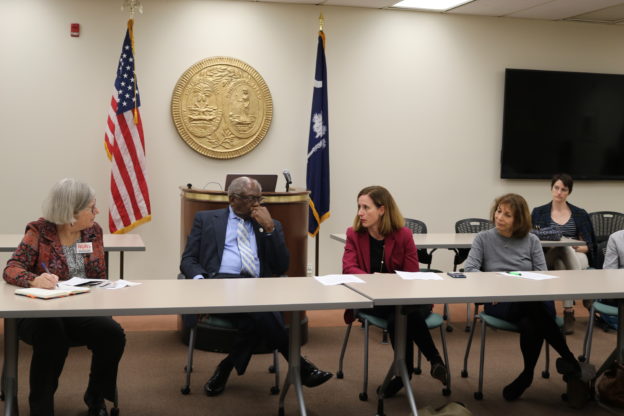
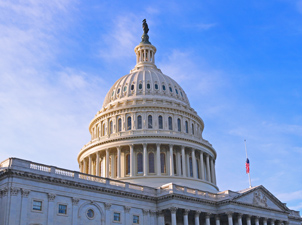

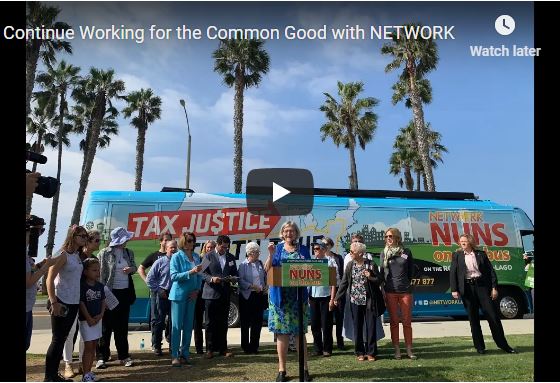

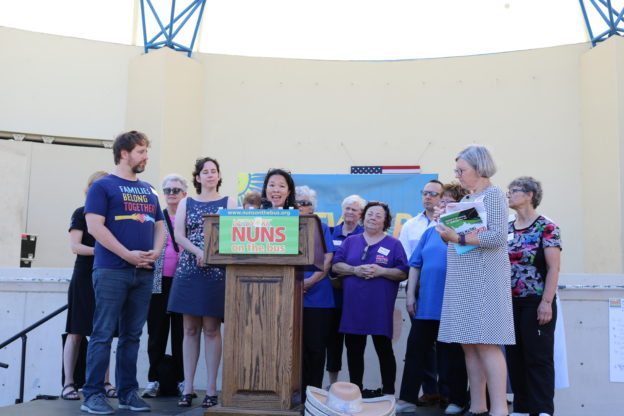

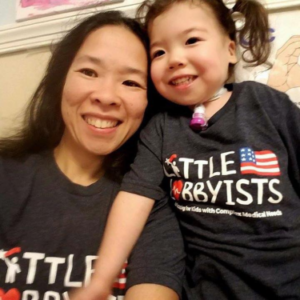 I am a mom, a lawyer, and as I like to refer to myself, an accidental activist. Like so many across the country, I started speaking up and becoming involved after Inauguration Day in January 2017.
I am a mom, a lawyer, and as I like to refer to myself, an accidental activist. Like so many across the country, I started speaking up and becoming involved after Inauguration Day in January 2017.